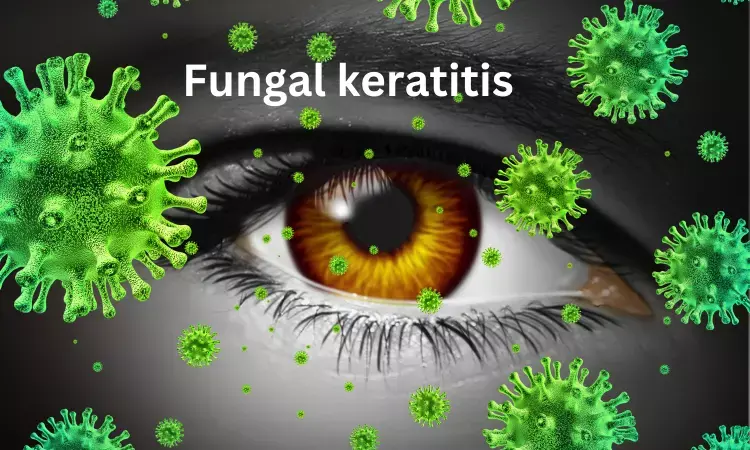- Home
- Medical news & Guidelines
- Anesthesiology
- Cardiology and CTVS
- Critical Care
- Dentistry
- Dermatology
- Diabetes and Endocrinology
- ENT
- Gastroenterology
- Medicine
- Nephrology
- Neurology
- Obstretics-Gynaecology
- Oncology
- Ophthalmology
- Orthopaedics
- Pediatrics-Neonatology
- Psychiatry
- Pulmonology
- Radiology
- Surgery
- Urology
- Laboratory Medicine
- Diet
- Nursing
- Paramedical
- Physiotherapy
- Health news
- Fact Check
- Bone Health Fact Check
- Brain Health Fact Check
- Cancer Related Fact Check
- Child Care Fact Check
- Dental and oral health fact check
- Diabetes and metabolic health fact check
- Diet and Nutrition Fact Check
- Eye and ENT Care Fact Check
- Fitness fact check
- Gut health fact check
- Heart health fact check
- Kidney health fact check
- Medical education fact check
- Men's health fact check
- Respiratory fact check
- Skin and hair care fact check
- Vaccine and Immunization fact check
- Women's health fact check
- AYUSH
- State News
- Andaman and Nicobar Islands
- Andhra Pradesh
- Arunachal Pradesh
- Assam
- Bihar
- Chandigarh
- Chattisgarh
- Dadra and Nagar Haveli
- Daman and Diu
- Delhi
- Goa
- Gujarat
- Haryana
- Himachal Pradesh
- Jammu & Kashmir
- Jharkhand
- Karnataka
- Kerala
- Ladakh
- Lakshadweep
- Madhya Pradesh
- Maharashtra
- Manipur
- Meghalaya
- Mizoram
- Nagaland
- Odisha
- Puducherry
- Punjab
- Rajasthan
- Sikkim
- Tamil Nadu
- Telangana
- Tripura
- Uttar Pradesh
- Uttrakhand
- West Bengal
- Medical Education
- Industry
Therapeutic Penetrating Keratoplasty an effective treatment option for Fungal keratitis

Fungal keratitis (FK) accounts for about 40% to 50% of all microbial keratitis cases. FK is a serious condition that if not properly treated can lead to corneal destruction and endophthalmitis with severe loss of vision. Early diagnosis and management are, therefore, essential to prevent long-term complications including blindness.
Therapeutic Penetrating Keratoplasty (TPK) is a common procedure performed to treat very severe fungal keratitis, as it logically reduces the sheer bulk of infectious organisms and replaces lysed and lysing corneal tissue. A team of researchers evaluated the outcomes of Therapeutic Penetrating Keratoplasty (TPK) performed for severe fungal keratitis. The findings are published in Journal of Clinical Ophthalmology.
The findings suggest that in this retrospective 10 years study of 60 patients with fungal keratitis, a single TPK procedure resulted in eradication of the infection in 73% of patients. Fusarium was the most identified pathogen, followed by Aspergillus and Pythium species. Ultimately anatomical preservation of the globe was achieved in 76%, while graft survival was 30% at 1 year.
The researchers looked into medical records of all patients who underwent TPK in Siriraj medical center between April 2010 and July 2020 were culled and those in which fungal pathogens were definitively identified were studied. The primary outcome was eradication of the fungal infection. Secondary outcomes were preservation of anatomical integrity, graft survival and achievement of Visual Acuity (VA) greater than or equal to 3/60.
The key findings of the study are
• Sixty patients met the study criteria and were included in the analysis. The mean patient age was 56 (range: 23-79) years and most patients were men (46, 77%).
• Fifteen eyes (25%) sustained corneal perforation before undergoing TPK. Graft survival was 30% at 1 year, 18% at 5 years and 11% at 10 years.
• The most common organism was Fusarium (23 patients, 38%). The median duration from presentation to surgery was 14 (8-21) days.
• Disease eradication was achieved in 44 patients (73%) and VA better than 3/60 was achieved in 14 (23%).
• Anatomical integrity was maintained in 46 (76%) eyes. Repeat PKP was performed in 15 patients (25%), most commonly for recurrent infection.
The researchers concluded that “TPK offers a good chance of disease eradication and maintenance of anatomical globe integrity and is a reasonable therapeutic option in patients with severe fungal infection.”
Reference: Kengpunpanich S, Prabhasawat P, Gem C, et al.. Long term outcome of therapeutic penetrating keratoplasty for severe fungal keratitis. J Clin Ophthalmol. 2023;7(2): 637-644.
MSc. Neuroscience
Niveditha Subramani a MSc. Neuroscience (Faculty of Medicine) graduate from University of Madras, Chennai. Ambitious in Neuro research having worked in motor diseases and neuron apoptosis is interested in more of new upcoming research and their advancement in field of medicine. She has an engrossed skill towards writing and her roles at Medical dialogue include Sr. Content writer. Her news covers new discoveries and updates in field of medicine. She can be reached at editorial@medicaldialogues.in
Dr Kamal Kant Kohli-MBBS, DTCD- a chest specialist with more than 30 years of practice and a flair for writing clinical articles, Dr Kamal Kant Kohli joined Medical Dialogues as a Chief Editor of Medical News. Besides writing articles, as an editor, he proofreads and verifies all the medical content published on Medical Dialogues including those coming from journals, studies,medical conferences,guidelines etc. Email: drkohli@medicaldialogues.in. Contact no. 011-43720751


